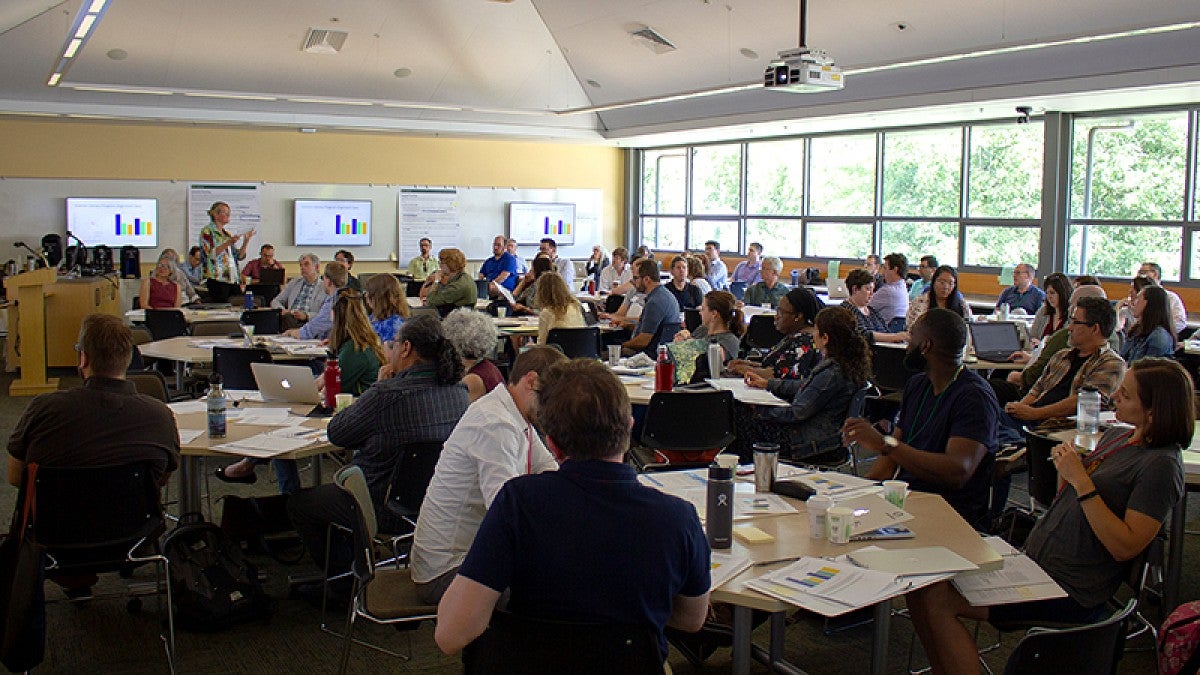Less than 24 hours after commencement, University of Oregon faculty members were back in the classroom discussing teaching practices and preparing for the next academic year.
Hosted by the Office of the Provost, the Teaching Engagement Program, UO Libraries and the Provost’s Teaching Academy advisory board, the second annual Summer Teaching Institute brought nearly 100 faculty members together in topical pathways and core skills workshops to learn more about evidence-based teaching practices.
“Faculty’s smart questions, classroom examples, rich insights from across disciplines and care for one another as fellow teachers and for our students made the week powerful and inspiring,” said Lee Rumbarger, assistant vice provost for teaching engagement. “When they leave the summer institute, they know some valuable practices linked to these principles that they can draw on to help their students learn.”
Fifty-eight faculty members participated in one of three pathways about teaching online; difference, inequality and agency; the new UO undergraduate course requirement; and transformative core education. Faculty members from the Lundquist College of Business and Clark Honors College participated as groups with specific goals of shaping their teaching practices and curriculums.
“The teaching institute gave us the opportunity to think deeply about our new curriculum, particularly a new course that all CHC first-year students will take,” said Gabe Paquette, dean of the Clark Honors College. “It was stimulating and inspiring to connect with faculty from across campus. We are motivated to develop a new engaged, inclusive, and research-led curriculum in the CHC.”
The institute balanced time between pathway workshops, accompanying context-specific activities and core skills workshops. The core skills workshops included “Teaching Toward Inclusion and Belonging,” “Aligned Design,” “Research-led Practices to ‘Activate’ a Class,” “Student Metacognition” and “What Should be Different about Teaching at a Research University?”
Conversations about teaching wouldn’t be complete without hearing from the students being taught. A panel of undergraduate students gave their perspectives on classroom activities that matter to them and a doctoral candidate in theater arts led the institute in exercises for feeling more present in the physical space of a classroom.
In addition to the faculty members who participated, 42 UO administrators, faculty members and students served in facilitator, presenter and panelist roles at the institute.
“I am really coming away with a sense of support and a clear scaffold of folks I can reach out to if I need any help,” said Rachel Eccleston, an instructor in the Department of English. “I was already familiar with my support system within my department, but I learned so much about all the different members of the library and online teaching community, as well as the broader unit of passionate teachers across campus.”
—By Jesse Summers, University Communications


